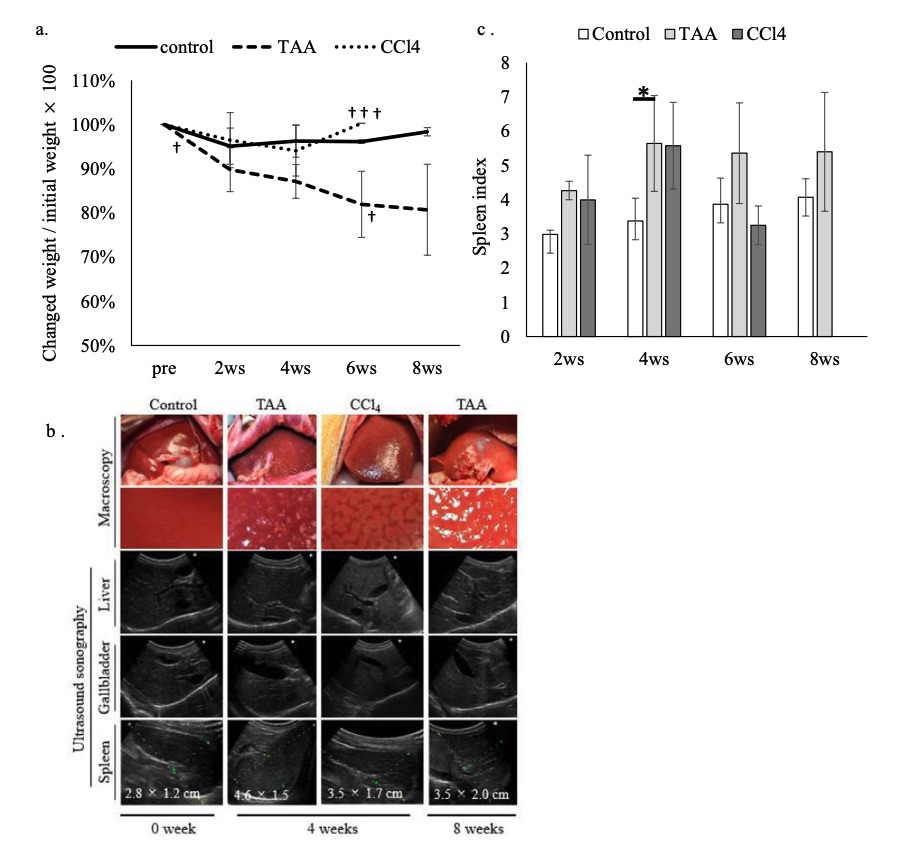Primate Liver Fibrosis/Cirrhosis Modeling & Pharmacodynamics Service
Creative Biolabs is a professional CRO company, concentrating on providing preclinical services for our global clients. We have assisted our global clients in their study project implementation using our well-established non-human primate (NHP) disease models (please click here to find more information). With the fully-equipped facilities, a professional R&D team, and the standardization management system, we are dedicated to assisting with your pharmacology and pharmacodynamics (PD/PK) projects.
What is Liver Fibrosis/Cirrhosis?
Liver fibrosis is a pathophysiological process referring to the abnormal proliferation of connective tissue in the liver. There are many causes of liver fibrosis, such as viral hepatitis, alcoholic liver, fatty liver, and autoimmune diseases. Liver damage induces liver fibrosis in the process of liver repair and healing. If the damage factor cannot be removed for a long time, the process of fibrosis will continue to develop into cirrhosis.
 Fig. 1 Changes in body weight, ultrasound findings, and spleen index of novel liver fibrosis model in Macaca.1
Fig. 1 Changes in body weight, ultrasound findings, and spleen index of novel liver fibrosis model in Macaca.1
Preclinical Tools for Liver Fibrosis/Cirrhosis Research
Liver fibrosis and continuous development can eventually progress to liver cirrhosis, so early prevention and reversal of liver fibrosis have become a research focus. Experimental animal models are essential tools for research. At present, there are many methods for establishing liver fibrosis and cirrhosis models, which can be divided into the following five categories: 1. chemical-based models induced by ethanol, carbon tetrachloride, thioacetamide, or dimethylnitrosamine and diethylnitrosamine; 2. diet-based models induced by methionine choline-deficient diet, high-fat diet, high cholesterol diet, or choline-deficient L-amino acid defined diet; 3. surgery-based models; 4. genetically modified models, such as multidrug resistance-associated protein 2-deficient mice, Alms1Fat ausi mutant mice, etc.; 5. infection-based models induced by hepatitis virus or Schistosoma spp.
Why We Need NHP Models of Liver Fibrosis/Cirrhosis?
Liver fibrosis is reversible, but when liver fibrosis develops into cirrhosis, it is difficult to reverse. Therefore, timely blocking of the development of liver fibrosis is essential for the prevention and treatment of chronic liver disease. The establishment of animal models of liver fibrosis and cirrhosis is an effective tool for evaluating the efficacy and safety of drug candidates in preclinical research. Smaller experimental animals, such as rats, are often used as model organisms to study liver fibrosis/cirrhosis. However, NHPs are considered to be better models of human diseases due to their higher physiological similarity to humans.
What Services Can We Provide?
With the accumulated experience of NHP model establishment, Creative Biolabs has successfully induced liver fibrosis/cirrhosis in cynomolgus monkeys, which provides a better research platform for the prevention and treatment of human liver fibrosis/cirrhosis. The evaluation of therapeutic candidates on this model is also supported by in-house assays including but not limited to liver biochemistry, liver histopathology (H&E staining and Masson staining), western blot assays, immunohistochemistry, quantitative real-time PCR, serum levels of cytokines determination by ELISA or Luminex, etc.
If you are interested in the liver fibrosis/cirrhosis model in NHPs, please feel free to contact us for more information. Creative Biolabs is your trusty CRO partner. Our scientists are willing to work with you and assist you in achieving your research goal.
Equipped with rich expertise and advanced technology platforms, Creative Biolabs offers various Liver Disease Models you may be interested in:
| Liver Disease Models | |
| Non-Alcoholic Fatty Liver Disease (NAFLD) Model | Non-Alcoholic Steatohepatitis (NASH) Model |
| Primate Liver Fibrosis/Cirrhosis Model | Primate Acute Liver Injury (ALI) Model |
Reference
- Matsuo, Megumi, et al. "Novel liver fibrosis model in Macaca fascicularis induced by thioacetamide." Scientific Reports 10.1 (2020): 2450. Distributed under Open Access license CC BY 4.0. The image was modified by extracting and using a-c parts of the original image.
For Research Use Only.
